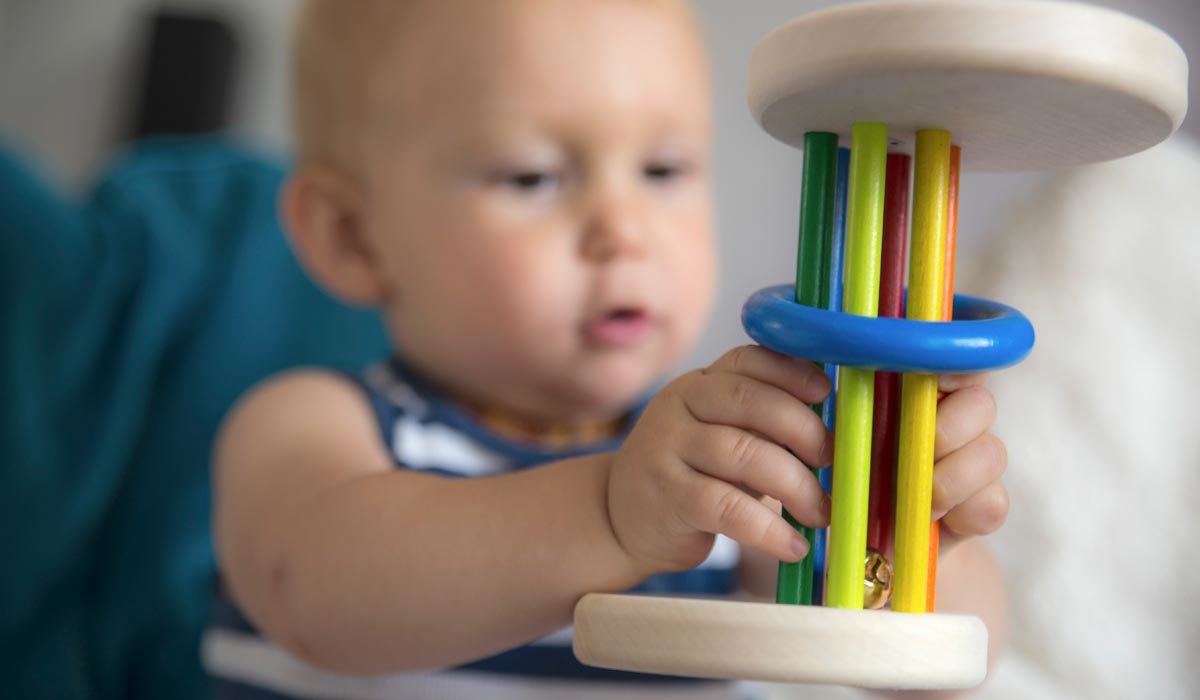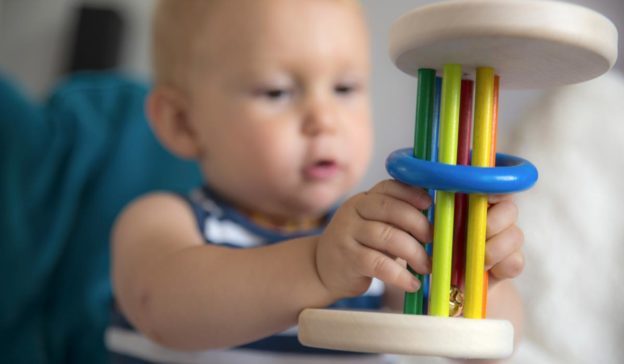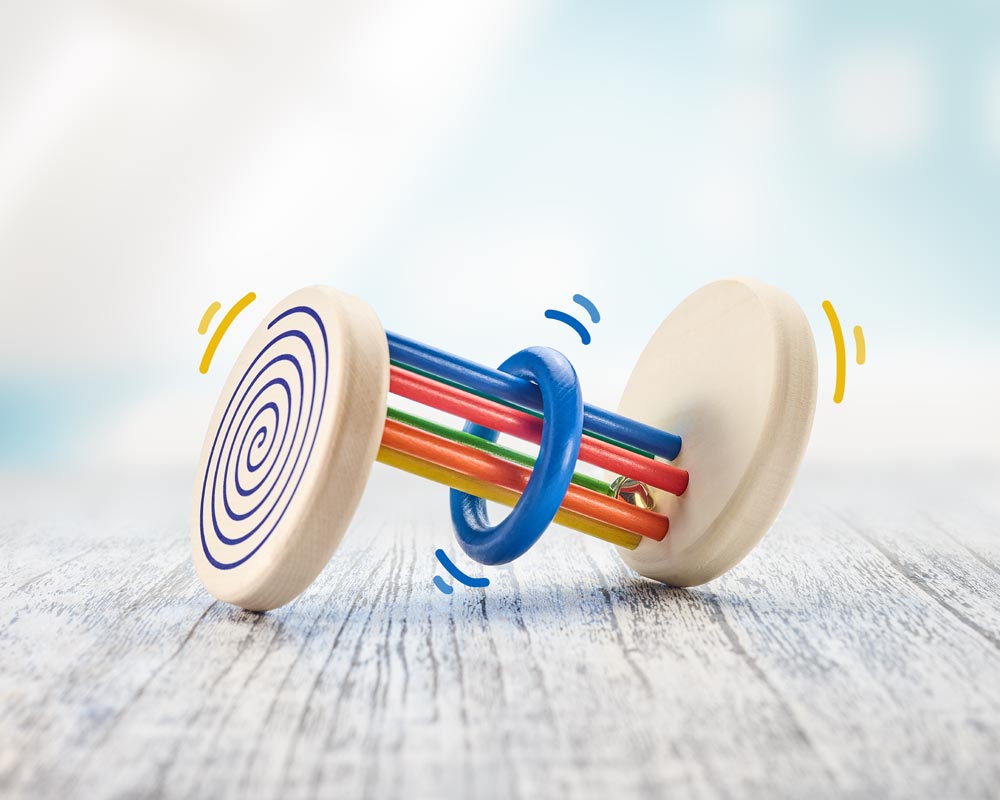If we take the time to watch a baby, we can see how they occupy themselves: they look around wide-eyed, perhaps stopping here and there to focus on a particular object. If they see another person, they look into the person’s face and imitate their facial expression. When they are bigger, they grab at the things around them with their tiny hands in order to explore and feel them. At some point, they will also guide their food towards their mouth, touch it, smell it and taste it. All this, and a lot else besides, is play to the child.

Play is the only thing with which babies occupy themselves, because they get to know the world through playing. They test out their abilities and gradually expand upon them by playing. This is why a baby does not have to learn to play: they bring play, curiosity and a desire for adventure with them when they come into the world. Children play in different ways depending on their temperament, and while a child’s interests are influenced by environmental factors, they are also governed by what he or she finds personally engaging.
This is why we as parents do not have to teach our children how to play. Our main task is to avoid disturbing or side-tracking our baby or child when they are playing, and to let them investigate; children should be allowed to discover their toys for themselves and test out the toys’ functions. They do this by touching toys with their hands and mouths and checking their properties. We need not demonstrate the functions of a toy or explain a well-designed toy to our child; we can rely on them to discover these things for themselves.
Babies want to discover the world for themselves
If a child is given the chance to explore a toy themselves, they can employ all their senses in the process and thus learn holistically. In addition, they gain crucial experience by acting independently; they are delighted to be able to manage and work things out for themselves, and endorphins are released into the body when they have positive experiences. These endorphins consolidate freshly-learned knowledge and allow children to approach new challenges in a positive way. Children will be open to applying themselves to new tasks from the beginning and will benefit from this in the long term if they are simply allowed to play and explore according to their own needs from when they are babies. We adults can define the scope of play at the start, i.e. the choice of materials and toys, and thus give babies the opportunity to gain a wide variety of sensory impressions from the play materials.
This is an article by our guest writer Susanne Mierau. She is the mother of three children, a trained educationalist (specialising in infant pedagogics), a family counsellor and the editor of the online magazine geborgen-wachsen.de (‘Growing Up Safely’), as well as the author of guides on the topic of living with babies and small children.





